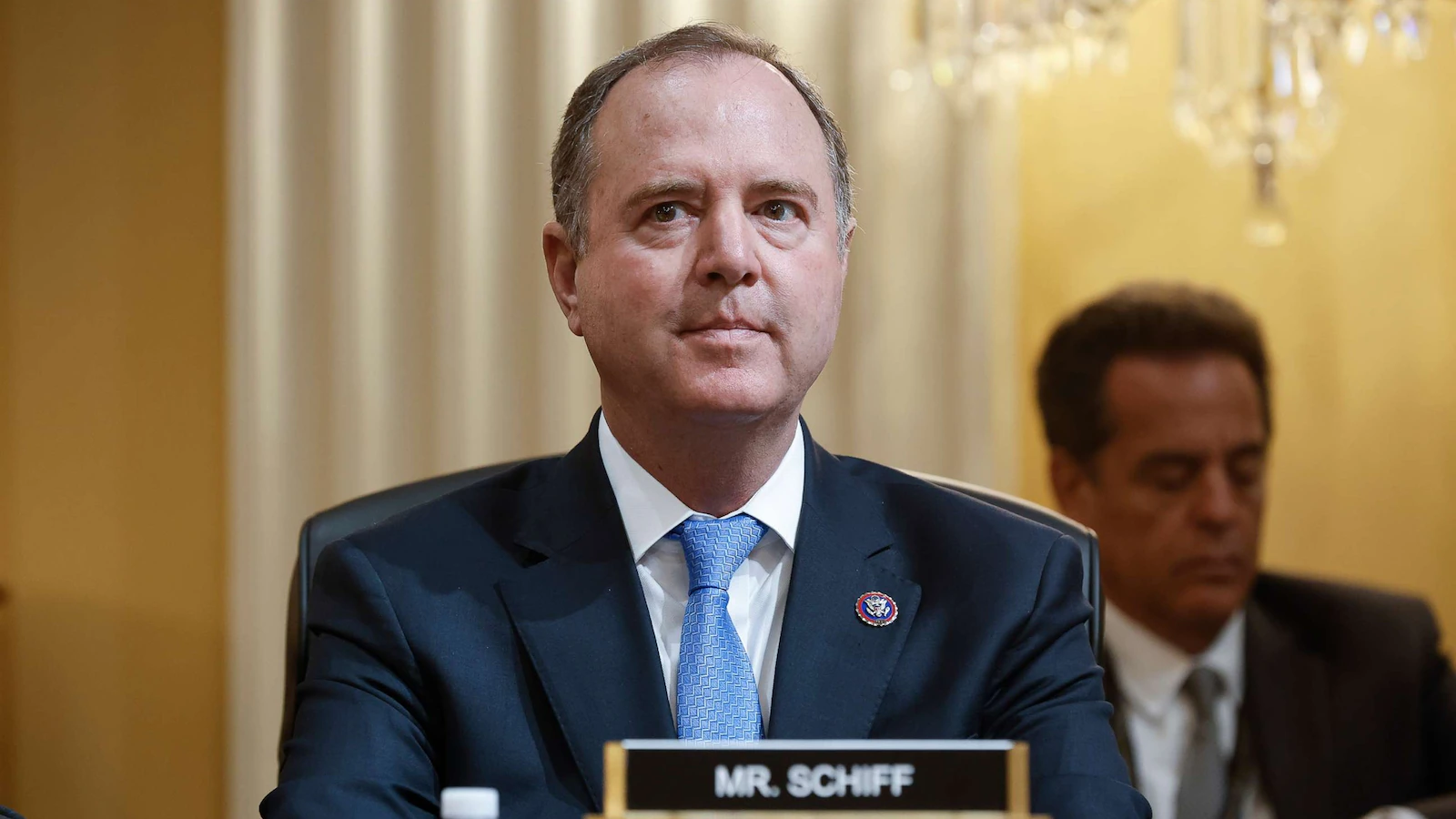By Isabella Murray
Copyright go

California Democratic Sen. Adam Schiff, a longtime political foe of President Donald Trump, is reintroducing what he calls landmark pro-democracy legislation on Wednesday — but with notable updates aimed at directly addressing activity from the White House over the past eight months of Trump’s second term.
The “Protecting Our Democracy Act” is Schiff’s signature piece of legislation, expanded now to take into consideration what he calls “new abuses of this administration,” the senator said in an interview with ABC News — abuses he says include the Trump’s administration acceptance of a luxury jet from the Qatari royal family for use as the new Air Force One without congressional approval and maneuvers from the president to impose global tariffs.
Changes in the new bill — shared exclusively with ABC News ahead of its release — update a 2021 version of the legislation that passed through the then-Democrat-controlled House but was later blocked in the Senate.
“The necessity is even greater now,” Schiff said.
Updates include expanding limits on pardon power, new provisions regarding the dismissal of criminal prosecutions, strengthening congressional subpoena enforcement and asserting lawmakers’ power of the purse and protecting whistleblowers. The bill also would create an inspector general to oversee the Executive Office of the President. ABC News has reached out to the White House for a comment on the updated bill.
The 2021 version of Schiff’s bill sought to echo changes that were made following the Nixon presidency, when in the wake of Watergate, Congress passed a series of reforms to prevent abuses of power.
“They served us well for almost half a century,” Schiff wrote at the time. “But it is time for us to add to them.”
He called it his “central animating purpose” for Congress to pass a comprehensive set of reforms that “protect our country from being vulnerable to another wannabe strongman in the future” – even if it’s one from his own party.
“There will come a time when Trump is no longer in office, when Republicans, I think, remember what they used to stand for and limits on executive authority, because they’ll want to use them, if necessary, against the Democratic president, if a Democratic president oversteps their authority,” he said. “So, there will come a time when these reforms will have bipartisan support,” he said, claiming he plans to continue re-introducing the bill as long as he needs to during his time as a senator — even acknowledging any changes would likely come after Trump leaves office.
A longtime member of the U.S. House, the California Democrat became one of the president’s chief congressional critics when he helped lead the first impeachment trial against Trump in 2020 and served as a prominent voice on the committee that investigated the Jan. 6, 2021, mob attack on the U.S. Capitol.
Trump’s calls last year to prosecute Schiff and the other members of the House Jan. 6 committee prompted outgoing President Joe Biden to issue a preemptive pardon to the freshman senator.
That preemptive pardon is something Schiff says he didn’t — and still doesn’t — want, despite renewed and even increased threats against him in recent months.
“I don’t think the president should have issued the pardons that he did. I spoke out against it when he was considering it, and I don’t like the precedent that it set,” Schiff told ABC News. “I think, you know, that what President Biden did opens the door for President Trump to issue preemptive pardons to his family or political allies, and for that reason, I opposed it at the time, and I still oppose it.”
In Trump’s second term, Schiff has become even more of a key target of the president. Over the course of the summer, Trump has repeatedly alleged that the Democrat has “engaged in a sustained pattern of possible Mortgage Fraud,” which are allegations Schiff ardently denies. In July, the Justice Department launched an investigation into Schiff regarding the fraud allegations. The FBI is also involved in an ongoing clash with Schiff over his past criticism of Trump.
Schiff’s updated bill notably expands the limits on the potential abuse of pardon power. It’s written to include former presidents and presidents-elect in reporting requirements and a financial disclosure requirement for pardoned individuals. It directly curtails a president’s ability to use pardons for self-serving purposes or to protect allies.
Other notable changes to the bill come in response to a host of other actions from the Trump administration since they came into the White House in January.
The bill, if passed, would amend the National Emergencies Act to limit a president’s ability to exercise statutory emergency authorities indefinitely, without review or approval by Congress. The text previously excluded certain national emergencies invoked using the International Emergency Economic Powers Act (IEEPA). Those exclusions were removed.
Tariffs imposed by Trump under IEEPA are currently in effect despite two federal court rulings that have found them to be unlawful. Schiff called Trump’s imposition of tariffs under IEEPA an “abuse.”
The bill would also create the “Stop Millionaires Using Service for Kickbacks’ Act,” which would amend the federal conflicts of interest statute to require government employees to recuse themselves from any matters affecting the financial interests of previous employers from a four-year period prior. As it’s MUSK acronym alludes to, is meant to respond to billionaire Elon Musk’s designation as special government employee in the beginning of Trump’s term, which allowed him to be covered by a federal conflicts-of-interest statute that prohibits government employees from participating in matters that would affect their financial interests.
This bill isn’t the first time Schiff is challenging Trump during his second term, either. The California Democrat was one of the leading voices in objecting to Trump ally Ed Martin’s nomination to be U.S. Attorney in D.C. On Tuesday, Schiff sparred publicly with FBI Director Kash Patel at a Senate Judiciary Committee hearing over matters related to Patel’s handling of the Epstein files, among other things.
But, he said, he thinks this good governance legislation is what his party needs to get on the books in order to adequately fight back against the Trump administration.
“I do think it’s important that Democrats not just talk about what we’re against, but what we’re for- what kind of reforms we would bring about,” Schiff said.
“We need to begin socializing these changes now, even if we don’t have a chance to pass them right now, we need to be setting a marker for what we need to do to protect our democracy when the pendulum swings back and Congress once again reasserts itself as a co-equal branch of government,” Schiff said.
Schiff plans a news conference Wednesday, along with fellow Congressional Democrats, to commemorate Constitution Day and announce this legislation. At the press conference, Schiff is also introducing a “Citizens Over Corporations” amendment — a proposed change to the Constitution that would overturn Citizens United v. FEC, the Supreme Court decision that allows corporations and other outside groups to spend with no cap on elections and limit corporate influence and spending in politics.



